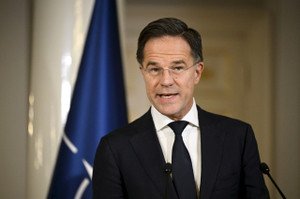Revised EU fiscal rules to balance investment, debt reduction
Published by maria gbaf
Posted on January 19, 2022
3 min readLast updated: January 28, 2026

Published by maria gbaf
Posted on January 19, 2022
3 min readLast updated: January 28, 2026

The EU revises fiscal rules to balance investment needs with debt reduction, focusing on economic growth and climate change investment.
By Jan Strupczewski and Michael Nienaber
BRUSSELS (Reuters) – The main thrust of the revision of the European Union’s fiscal rules, now under way, is to balance the 27-nation bloc’s large investment needs with a realistic pace of debt reduction, French Finance Minister Bruno le Maire said on Tuesday.
Speaking after a meeting of EU finance ministers which he chaired, le Maire said the discussion on changes to the rules was no longer between “frugal” and “spendthrift” camps, as during the sovereign debt crisis a decade ago.
“The debate between frugal and less frugal is an old debate, we’ve gone beyond that,” le Maire said in a news conference. “No one says we need to go back to strict fiscal discipline straight away. It is impossible, it would kill growth,” he said.
“The genuine discussion now involves the balance we have to find between investment and a return to healthy public finances. We all want to see investment … we also all want to cut debt,” he said, stressing there was no difference on the subject between France and Germany.
The fiscal rules, designed to limit government borrowing to safeguard the value of the euro, are now under review because the COVID-19 pandemic boosted EU public debt so much that existing laws can no longer apply.
At the same time, fighting climate change requires enormous public and private investment over decades that many argue should be reflected in EU laws.
Germany’s new Finance Minister Christian Lindner, speaking at a separate news conference, said he was open to changes in EU budget rules, even though his FDP party is seen as the most fiscally conservative in Germany’s ruling coalition.
“No, I’m not a scary hawk – I’m a friendly hawk,” Lindner told reporters. “I’m open to arguments and Germany wants to be part of solutions – and not part of a problem.”
“In the future, we must bring together the idea of growth as well as the goal of fiscal stability and sustainability of public finances,” Lindner said.
Le Maire said there was no debate over the essential need to reduce debt.
“The real question is at what pace,” he said, pointing out that the pandemic had boosted the difference between public debt levels between some EU countries even to 100 percentage points.
He said the other challenge was investment, which the European Commission estimates for the EU at more than half a trillion euros per year for the next 10 years to transform the European economy so that it does not emit any carbon dioxide (CO2) by 2050.
“We do need private investment for that, public investment will not suffice, public investment should serve as a lever,” le Maire said.
(Reporting by Jan Strupczewski; Editing by Paul Simao)
The main topic is the revision of EU fiscal rules to balance investment needs with debt reduction.
They are being revised due to increased public debt from COVID-19 and the need for climate change investment.
Germany is open to changes in EU budget rules, aiming for growth and fiscal stability.
Explore more articles in the Finance category
